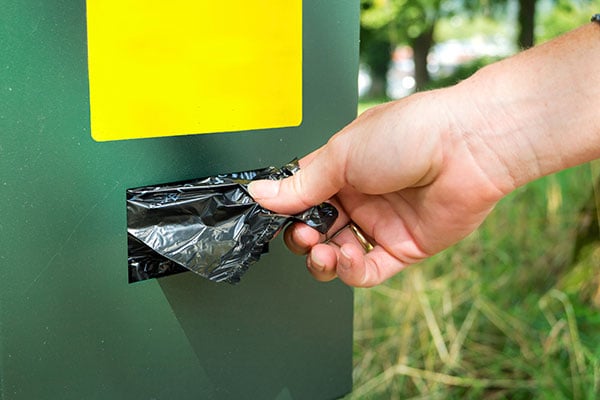Every community has it's share of problem owners, from the ones who refuse to follow the guidelines and complain about every bylaw to those who just can't make their assessment payments on time. It can be a frustrating and endless cycle for many board members, but it has never and will never justify the use of a "Deadbeat" list. In addition to having never been an effective way to encourage on-time payment, it's also legally and morally troublesome. Shaming your owners is just not an effective way to handle any situation.
What is a Deadbeat List and Why Shouldn't we
HOAs are member-run and very few homeowners have expert neighborhood management background - this can result in incomplete methods and even traditions of methods that seem functional but don't really work. The Deadbeat list is among them. Used through the ages by many organizations where members hold accounts, from HOAs to bar tabs; the list is a publication of the names of those late on payments. It might be in a newsletter, on a bulletin board, or recorded in meeting minutes.
Also known as the Delinquent list or the Shame list, this is an ancient tradition that, unfortunately, just doesn't work. The goal is to shame those behind on payments into paying, so they are removed from the list - it is essentially a form of blackmail. So it's no surprise that there are both legal and social consequences. The Deadbeat list may seem like a good idea, but here's why it doesn't work:
Legal Troubles with the Deadbeat List
First, let's cover the risks your HOA is exposed to any time someone publishes a Deadbeat list. It is against the law federally and in most states to publish the names of those in debt, or any details about their debt. These laws were written to protect the financial privacy and the personal rights of anyone holding debt which - let's face it - is most of us.
HOAs do not have special rules to remediate debts to the association, and therefore are subject to these laws of debtor financial privacy as well.
Debtor Rights Laws
The national Fair Debt Collection Practices Act (FDCPA) protects every citizen who owes a debt by controlling the actions of those who are owed. In the act of debt collection, collectors (in this case, the HOA) are not allowed to contact anyone other than the debt-holder about the debt or make the debt public. This was put in place to, for example, prevent debt collectors from calling families and friends of debtors to frighten them or socially isolate them - something debt collectors are historically wont to do.
By publishing a shame list of debtors, HOAs can fall into the same shady tactics and face the consequences of federal law put in place to prevent such tactics. Violating debtor rights is a crime.
Financial Privacy Laws
Florida and other states have specific local laws requiring the protection of personal privacy and financial privacy. Publishing anyone's personal financial matters may be seen as a violation of privacy laws and can land the HOA in hot water.
Defamation Civil Lawsuits
In addition to directly breaking federal or state laws, the Deadbeat list also opens your HOA up to civil lawsuits. A homeowner with knowledge of their rights may sue for defamation of their public reputation. Especially if they have the ability and intent to pay soon or through a plan.
Why Deadbeat Lists Aren't Effective Anyway
In addition to the legal troubles that a public shaming list can cause, the social repercussions are equally unhelpful. Sometimes, a method tried based on theory proves not to be effective in practice. A Deadbeat list creates hostilities where there could have been negotiations and strife where quiet management would have been possible.
Angering Otherwise Genuine Homeowners
Homeowners who had full intention to pay their tab often become angered and hostile. Shaming every delinquent member across the board does not account for intent-to-pay, and can insult otherwise genuine members to the point of conflict. Deadbeat lists result in refusals and audits instead of compliance.
Creating Strife Between Neighbors
Neighbors in the community will have strong opinions about the deadbeat list, one way or the other. Some will be angry at those who don't pay, some will be angry at the board on behalf of those shamed. This will create conflict and drive wedges between neighbors that can last for decades, creating trouble long after the debts are resolved.
Opening the Door to Legal Battles Over Fees
When a homeowner feels that their debt (or your enforcement methods) are unreasonable, they may demand access or publication of HOA financial records. Upsetting homeowners with threats and shame about debt is an excellent way to have your entire budget and fine system analyzed by angry members.
Ultimately Makes Negotiations More Difficult
The final word is that Deadbeat lists simply make settling debts more difficult. You want payment plans and timetables, they want privacy and understanding about family financial struggles. These things are better achieved through respectful, private negotiations than through public shaming. A shame list creates hostility, which is not a good way to start debt repayment negotiations.
The Deadbeat List is Dead
The time of deadbeat lists has come and gone, and that's not a bad thing. There are laws that protect people with debts from abusive treatment, and science to prove that public shaming is less effective than respectful communication. With that once-traditional strategy off the table, we can refocus on better methods that build a strong well-meaning community instead of creating conflict between neighbors and the board.
Contact us for more HOA insights!




